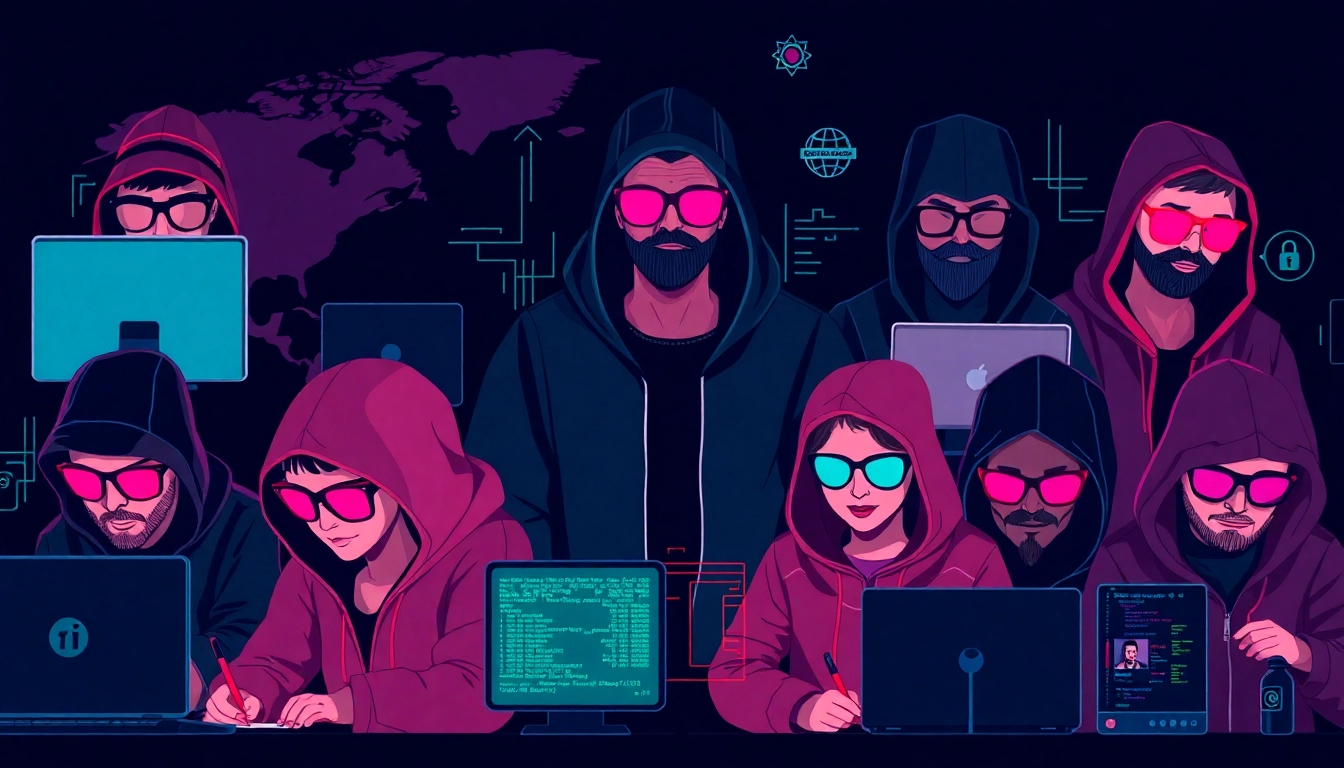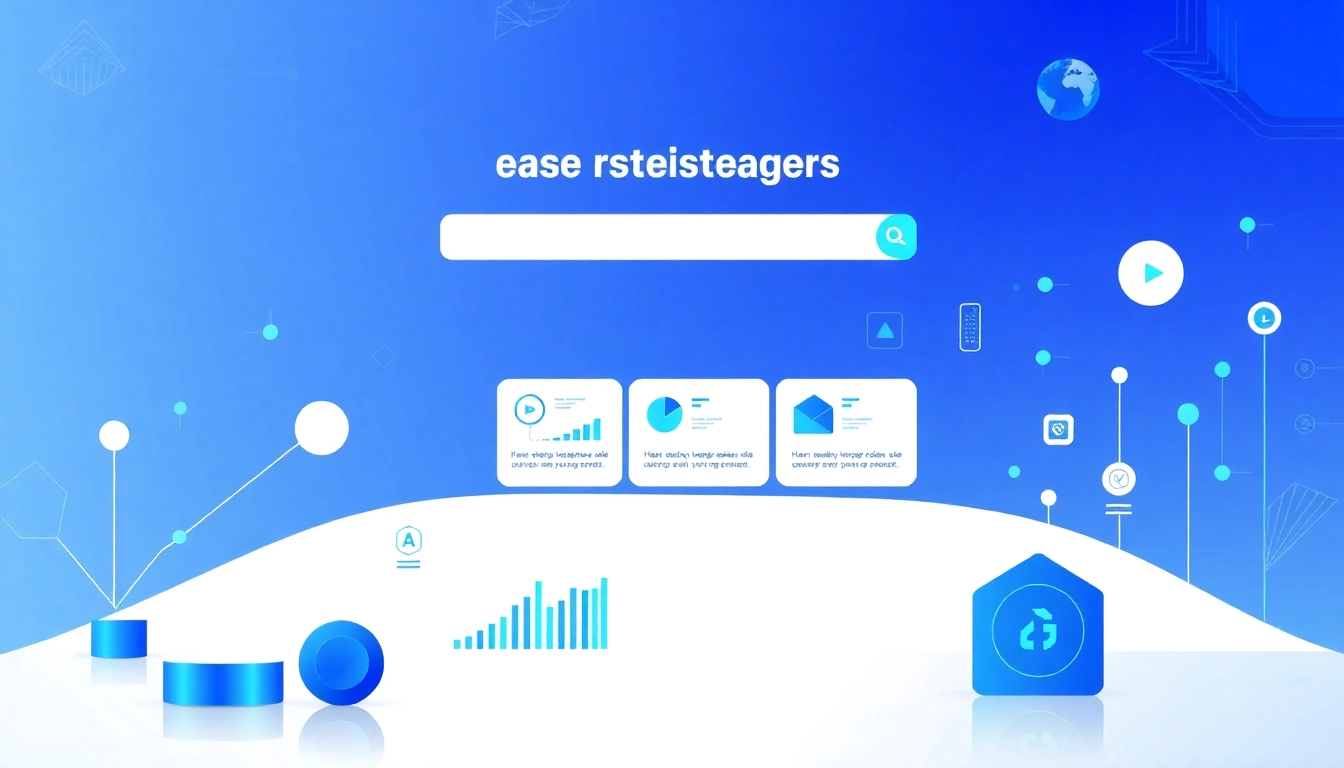Understanding Hacking: The Basics
What is Hacking?
Hacking, typically characterized by the practice of manipulating systems or networks to gain unauthorized access to data or exploit vulnerabilities, has evolved to encompass a wide range of activities and intentions. At its core, hacking refers to any unsanctioned access or actions taken within a computer system, network, or device. However, the motives behind hacking can diverge significantly from one hacker to another—some seek knowledge and improvement, while others aim to commit crimes or cause harm.
As technology advances, so do hacking techniques. Therefore, understanding the basic concepts of hacking is crucial for anyone involved in information technology or concerned about cybersecurity. It’s vital to recognize that while hacking often carries a negative connotation, there are ethical hackers who actively work to protect systems and networks from malicious attacks.
Different Types of Hackers
Hackers are classified into various categories based on their motivations and methods. Understanding these different types can help individuals and organizations adopt the right protective measures. The primary categories include:
- White-hat hackers: Ethical hackers who assist organizations in identifying and rectifying security vulnerabilities.
- Black-hat hackers: Malicious actors who exploit vulnerabilities for personal gain, often involving theft, fraud, or sabotage.
- Gray-hat hackers: These hackers operate in the ambiguity between ethical and unethical. They may exploit systems without malicious intent but still operate outside legal boundaries.
- Script kiddies: Typically inexperienced individuals who use pre-written scripts or tools to launch attacks without fully understanding how they work.
- Hacktivists: Hackers who utilize their skills to promote political agendas or social causes by targeting government or corporate websites.
- State-sponsored hackers: Operatives engaged by governments to conduct espionage or sabotage against nation-states or organizations.
- Malicious insiders: Employees or former employees who exploit their access to systems for illicit purposes.
How Hacking Impacts Security
The impact of hacking on security is profound. Cybercrime can lead to significant financial losses, private and sensitive information breaches, reputational damage, and loss of customer trust. Understanding this impact is vital for any organization that relies on digital infrastructure.
Furthermore, the consequences of a security breach extend beyond immediate financial losses. Organizations often face regulatory fines, legal liabilities, and the costs associated with mitigating the breach, including forensic investigations and system repairs. Ultimately, hacking highlights the vulnerabilities present in our technological ecosystems and the necessity for robust security measures.
Notable Hackers Throughout History
Profile of Kevin Mitnick
One of the most infamous hackers, Kevin Mitnick, known as “The Condor,” was a pioneer in exploiting social engineering tactics. With a history of breaching some of the most secure networks in the 1990s, his exploits led to his capture in 1995. Mitnick accessed sensitive data from major corporations, including Nokia, Motorola, and the Pentagon. After serving prison time, he transitioned into an ethical hacking role, offering consulting services to help protect organizations from cyber threats. His life story serves as a lesson on the importance of ethical standards in hacking.
Julian Assange’s Impact on Cyber Activism
Julian Assange, founder of WikiLeaks, has made headlines for releasing classified government documents and leaking sensitive data to expose corruption and abuse of power. While his motivations center around transparency and accountability, Assange’s actions have sparked considerable debate about privacy, national security, and the responsibilities of hackers. His work has reshaped not just hacking discourse but global conversations about the role of information in democracy.
Kevin Poulsen and His Infamous Hacks
Kevin Poulsen, also known as “Dark Dante,” was another notable hacker who achieved notoriety in the late 1990s for hacking telephone systems and manipulating radio contests. His most famous hack involved taking control of a radio station’s phone lines to win a Porsche. Poulsen’s activities ultimately led to his arrest, where he faced charges and later turned his life around, becoming a respected journalist specializing in cybersecurity issues.
The Legal Implications of Hacking
Cyber Laws in the United States
The U.S. legal system recognizes the serious threats posed by hacking and has enacted various laws to combat cybercrime. The Computer Fraud and Abuse Act (CFAA) is one of the primary laws addressing unauthorized access to computer systems and data. It makes both intentional and reckless access a prosecutable offense and highlights the serious nature of hacking. Various laws also address privacy issues, identity theft, and other unauthorized access to sensitive information.
International Cyber Security Regulations
Cybersecurity is not restricted to national laws; international agreements and regulations also play a crucial role. The European Union’s General Data Protection Regulation (GDPR) imposes strict guidelines on data protection and privacy, holding organizations accountable for data breaches. Similarly, various treaties and collaborations among countries aim to harmonize legal frameworks to address cross-border cyber crime effectively.
Consequences of Cyber Crime
The consequences of engaging in cyber crime are severe for both individuals and organizations. Criminal charges can lead to significant prison sentences, hefty fines, and civil liabilities for hacking activities. Additionally, organizations affected by cyber attacks often experience loss of customer trust, reputational damage, and potential financial penalties imposed by regulatory bodies. The pervasive nature of cyber crime underscores the necessity for ongoing security awareness and legal vigilance.
Staying Safe: Protecting Against Hackers
Best Practices for Cyber Security
Organizations must implement robust cybersecurity measures to protect against hacking. Some best practices include:
- Regularly updating software and systems to patch vulnerabilities.
- Implementing strong password policies and multi-factor authentication.
- Conducting regular security audits and penetration testing.
- Employee training to recognize social engineering tactics and phishing attempts.
- Developing an incident response plan to swiftly and effectively address breaches.
Tools and Technologies for Protection
Various tools and technologies are available to enhance cybersecurity. Firewalls, antivirus software, Intrusion Detection Systems (IDS), and encryption technologies are essential components of a comprehensive security strategy. Advanced AI-driven security solutions can provide real-time threat detection and automated responses to potential breaches, further enhancing organizational defenses against cyber threats.
Recognizing Phishing and Other Attacks
Phishing attacks remain among the most common methods hackers use to gain unauthorized access to sensitive information. Awareness of phishing techniques is crucial for prevention. Common signs of phishing include:
- Unexpected emails requesting personal information or urgent action.
- Links or attachments from unknown sources.
- Generic greetings and poor language in professional emails.
By training employees to recognize these signs and implementing robust email filtering systems, organizations can significantly reduce the risk of falling victim to phishing scams.
The Future of Hacking and Cyber Security
Emerging Trends in Cyber Crime
As technology continues to evolve, so do the methods employed by cybercriminals. There is a growing trend in ransomware attacks, where hackers encrypt a victim’s data and demand payment for decryption. Additionally, the rise of the Internet of Things (IoT) poses new security challenges, as increased connectivity creates more potential entry points for hackers. Organizations must remain vigilant and adaptive to counter evolving threats.
Role of Ethical Hackers
Ethical hackers play a crucial role in the cybersecurity landscape. By proactively testing systems for vulnerabilities, they help strengthen security measures before malicious hackers can exploit them. Organizations increasingly recognize the value of ethical hacking in safeguarding sensitive data and maintaining their reputations.
Preparing for the Next Cyber Threat
The ever-changing nature of cyber threats necessitates ongoing preparation and adaptation. Organizations should prioritize privacy and security by investing in research and development, continually updating their policies, and fostering a culture of security awareness among employees. By doing so, they can build resilience against potential attacks and protect their digital assets.







Leave a Reply